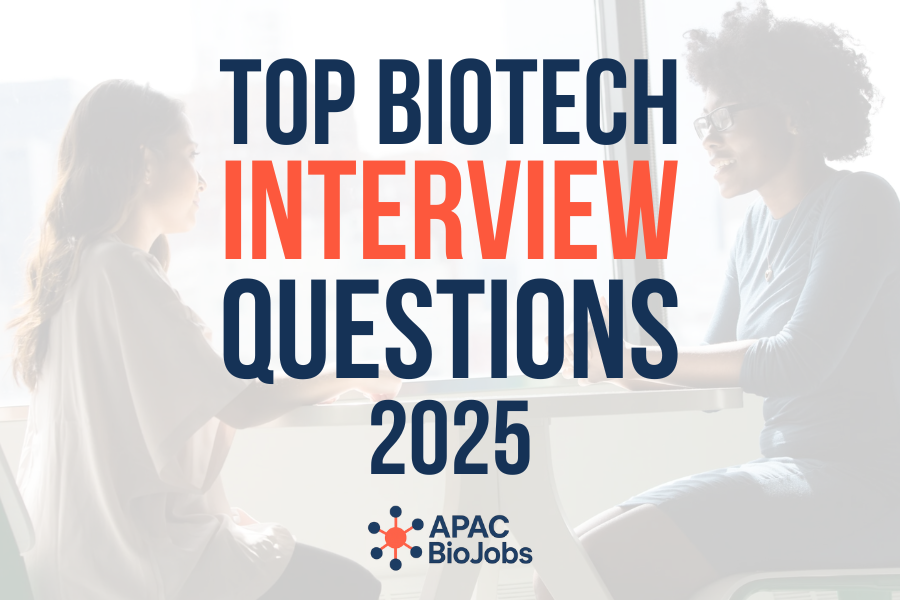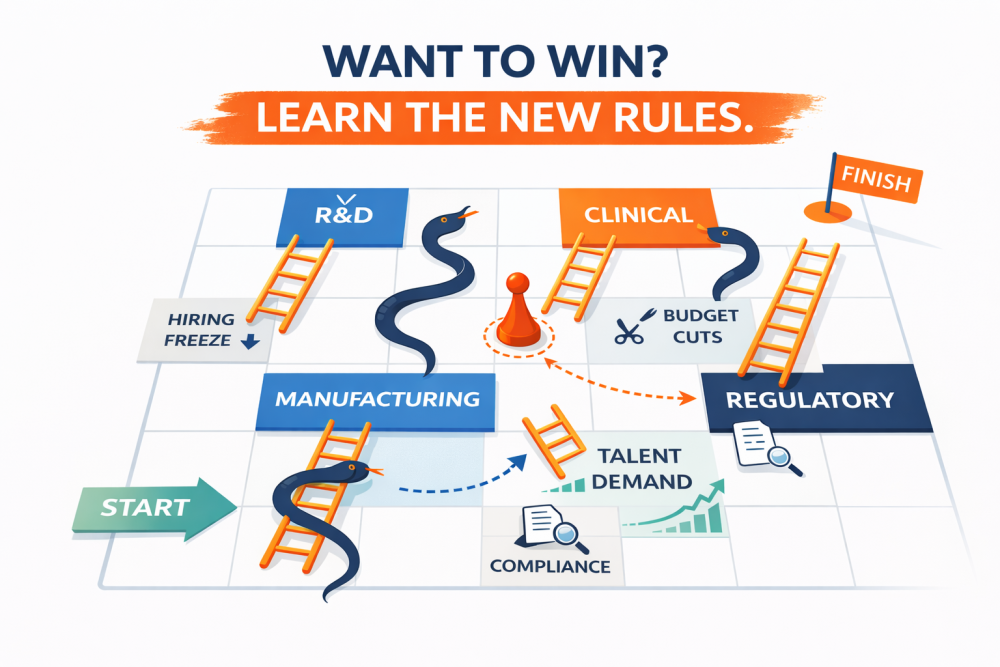
Breaking into or moving up in biotech can be exciting - and a little intimidating.
Whether you’re applying for an R&D position, a clinical research role, or a regulatory job, the interview process in biotech is designed to test more than just your technical skills.
In this guide, we’ve compiled the most commonly asked biotech interview questions in 2025, along with tips and example answers to help you stand out.
🔬 1. Tell me about your experience with laboratory techniques or biotechnological tools.
What employers look for:
Practical hands-on expertise and accuracy.
Tip: Name specific techniques (PCR, ELISA, chromatography, cell culture) and relate them to achievements or problem-solving examples.
Example Answer:
“I’ve worked extensively with PCR and gel electrophoresis for DNA analysis. In my last role, I optimized a protocol that cut run time by 20% while maintaining data quality.”
🧬 2. How do you ensure data integrity and compliance in your work?
Why it matters:
Quality and traceability are critical in biotech.
Tip: Mention documentation practices, validation steps, and adherence to GLP/GMP or ISO standards.
Example Answer:
“I maintain detailed electronic lab notebooks, perform peer reviews, and follow GMP protocols to ensure reproducibility and audit readiness.”
💻 3. How do you use data or software tools in your research?
What they want:
Digital skills - biotech is data-driven.
Tip: Mention software like GraphPad Prism, R, Python, or LIMS systems.
Example Answer:
“I use Python for analyzing bioinformatics datasets and GraphPad for statistical modeling. Combining both helps me interpret large genomic datasets efficiently.”
🌱 4. Describe a project where your experiment didn’t go as planned. What did you learn?
Purpose:
Testing your problem-solving mindset and resilience.
Tip: Focus on adaptability and scientific reasoning, not failure.
Example Answer:
“In a protein expression study, yields were inconsistent. After reviewing buffer conditions and using a different expression vector, we improved results by 40%. It reinforced how critical optimization is in experimental design.”
⚗️ 5. How do you stay updated with new developments in biotechnology?
Why it matters:
Biotech evolves rapidly - they want lifelong learners.
Tip: Mention specific journals, conferences, or communities.
Example Answer:
“I subscribe to Nature Biotechnology, follow Biotech Journal Club discussions, and attend AsiaBio events annually to stay current with new discoveries.”
🌍 6. Why do you want to work in this company or specific biotech area?
Purpose:
Testing motivation and fit.
Tip: Research the company’s pipeline or technology focus before answering.
Example Answer:
“I’m particularly excited about your work in cell-based immunotherapy and your collaborations across APAC. It aligns perfectly with my experience in cell culture and translational research.”
👩🔬 7. Where do you see biotechnology heading in the next 5 years?
Why it matters:
Assesses your strategic awareness and curiosity.
Example Answer:
“AI-powered drug discovery and synthetic biology will dominate the next five years, especially in APAC where funding and talent are expanding fast.”
🧠 8. Behavioral Question: How do you handle tight deadlines or multiple projects?
Tip: Use the STAR method (Situation, Task, Action, Result).
Example Answer:
“During a critical product validation, I prioritized tasks using Gantt charts and coordinated with QA early to avoid bottlenecks - we delivered results a week early.”
💬 9. Questions to Ask the Interviewer
Always prepare one or two thoughtful questions - it shows genuine interest:
- “How does your R&D team collaborate across regions?”
- “What are the next major milestones for this program?”
- “How do you support employee development in technical roles?”
🎯 Bonus: Quick Interview Tips
- Research the company’s pipeline - it’s the #1 differentiator in biotech interviews.
- Review fundamentals - PCR, cell culture, data analysis, and regulatory basics.
- Know your impact metrics - highlight outcomes, not just tasks.
- Practice clear communication - biotech teams are interdisciplinary.
- Stay authentic - enthusiasm for science goes a long way.
Final Thoughts
Interviews in biotech are as much about mindset as skillset.
Show curiosity, precision, and a drive to solve real-world problems - and you’ll already be ahead of the curve.
👉 Ready to put your interview skills to work?
Explore the latest biotech roles across Asia-Pacific at APACBioJobs.com


